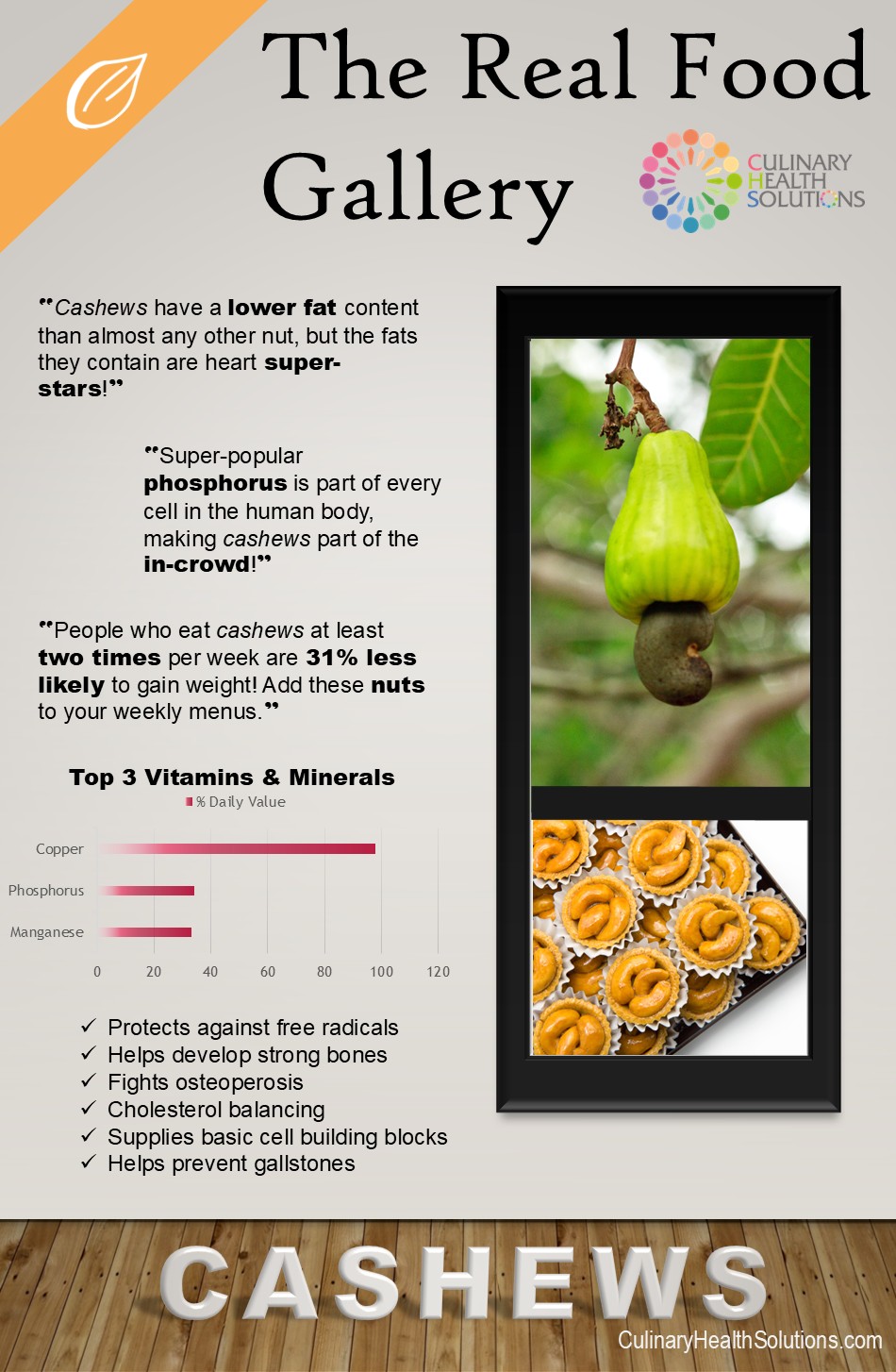Cashews

The delicately flavored cashew nut is a favorite between meal snack that can be readily found in your local market year round. It also makes wonderful nut butter and a special addition to salads and stir-fry dishes. Cashew nuts are actually the kidney shaped seeds that adhere to the bottom of the cashew apple, the fruit of the cashew tree, which is native to the coastal areas of northeastern Brazil. While cashew apples are not appreciated in the United States, they are regarded as delicacies in Brazil and the Caribbean. Cashews are always sold shelled because the interior of the shells
contains a caustic resin, known as cashew balm, which must be carefully removed before the nuts are fit for consumption. This caustic resin is actually used in industry to make varnishes and insecticides.
Not only do cashews have a lower fat content than most other nuts, approximately 82% of their fat is unsaturated fatty acids, plus about 66% of this unsaturated fatty acid content are heart healthy monounsaturated fats, similar to those found in olive oil. Studies of diabetic patients show that monounsaturated fat, when added to a low-fat diet, can help to reduce high triglyceride levels. Triglycerides are a form in which fats are carried in the blood, and high triglyceride levels are associated with an increased risk for heart disease, so ensuring you have some monounsaturated fats in your diet by enjoying cashews is a good idea, especially for persons with diabetes.
Although nuts are known to provide a variety of cardioprotective benefits, many avoid them for fear of weight gain. A prospective study published in the journal Obesity shows such fears are groundless. In fact, people who eat nuts at least twice a week are much less likely to gain weight than those who almost never eat nuts. The 28month study involving 8,865 adult men and women in Spain, found that participants who ate nuts at least two times per week were 31% less likely to gain weight than were participants who never or almost never ate nuts. And, among the study participants who gained weight, those who never or almost never ate nuts gained more (an average of 424 g more) than those who ate nuts at least twice weekly. Study authors concluded, "Frequent nut consumption was associated with a reduced risk of weight gain (5 kg or more). These results support the recommendation of nut consumption as an important component of a cardioprotective diet and also allay fears of possible weight gain."
Practical Tip: Don't let concerns about gaining weight prevent you from enjoying the delicious taste and many health benefits of nuts!
